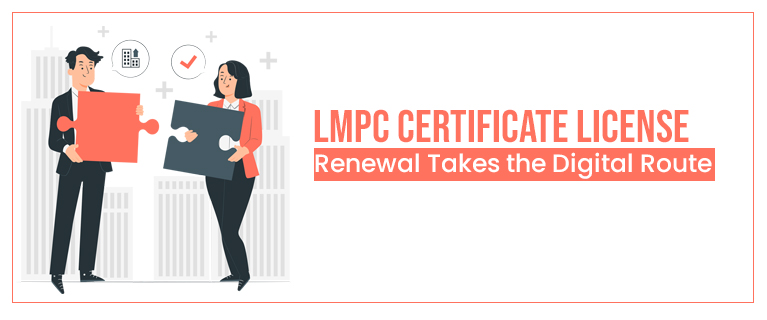How can I Get a Legal Metrology Certificate in India?
Embarking on a business venture in India entails not only entrepreneurial zeal but also a thorough understanding of the legal landscape governing trade and commerce. In this regulatory framework, obtaining a Legal Metrology Certificate is a crucial step for businesses involved in manufacturing, packing, and distributing goods. This comprehensive guide will shed light on the intricacies of acquiring a Legal Metrology Certificate in India, providing entrepreneurs with a roadmap to ensure compliance and lawful operations.
Understanding Legal Metrology in India:
Legal Metrology Certification is the science of measurement applied to laws and regulations. In the context of business and trade, it focuses on ensuring fair trade practices and consumer protection by standardizing weights and measures. The Legal Metrology Act, enacted in 2009, lays down the legal framework governing measurements and measuring instruments in India.
Read also this -: What Does the Legal Metrology Act Apply ToWho Requires a Legal Metrology Certificate?
Any entity involved in the manufacturing, packing, importing, selling, distributing, or repairing weighing and measuring instruments or pre-packaged goods falls under the ambit of Legal Metrology regulations. This includes manufacturers, traders, and service providers across various industries.
Key Components of Legal Metrology Certificate:
1. Applicability:
Identify the specific activities of your business that fall under Legal Metrology regulations. This could include manufacturing or trading in pre-packaged goods, or dealing with weighing and measuring instruments.
2. Documentation:
Compile Necessary Documents: Gather essential documents such as business registration certificates, trade licenses, and details of weighing and measuring instruments used in your business.
3. Preparation for Inspection:
Ensure Instrument Compliance: Regularly calibrate and verify weighing and measuring instruments to meet the prescribed standards. Be prepared for inspections by maintaining records of such verifications.
4. Application Process:
Contact the Controller of Legal Metrology: Reach out to the local Controller of Legal Metrology office or the relevant authority in your state. Understand the specific requirements and procedures for application.
Submit Application Form: Complete the application form with accurate details of your business and the activities covered under Legal Metrology Certificate. Attach the necessary documents and submit the application to the designated authority.
Pay Applicable Fees: There may be fees associated with the application process. Ensure timely payment of these fees to avoid delays in processing.
5. Inspection and Verification:
Physical Verification: The authorities may conduct a physical verification of your premises to ensure compliance with Legal Metrology regulations. Cooperate fully during these inspections.
Instrument Verification: If your business involves the use of weighing and measuring instruments, these instruments will undergo thorough verification to ensure accuracy.
6. Issuance of Legal Metrology Certificate:
Grant of Certificate: Upon successful verification and compliance, the Controller of Legal Metrology will issue the Legal Metrology Certificate. This certificate serves as official recognition of your adherence to legal standards in weights and measures.
7. Renewal and Compliance:
Renewal Process: Legal Metrology Certificates are typically valid for a specified period. Ensure timely renewal by submitting the necessary documents and fees.
Continuous Compliance: Throughout the validity period, maintain ongoing compliance with Legal Metrology regulations. This includes regular calibration and verification of weighing and measuring instruments.
Challenges and Tips for Smooth Certification:
1. Awareness and Training:
Educate Staff: Ensure that your staff is well-informed about Legal Metrology requirements and the importance of compliance. Conduct training sessions to create awareness.
2. Documentation Management:
Maintain Updated Records: Keep meticulous records of instrument calibrations, verifications, and any changes in business activities. Organized documentation simplifies the certification process.
3. Engage with Experts:
Consult Legal Experts: Seek advice from legal experts or consultants well-versed in Legal Metrology regulations. Their guidance can streamline the certification process and help you avoid pitfalls.
4. Proactive Compliance:
Regular Audits: Conduct internal audits to assess and ensure continuous compliance with Legal Metrology standards. Proactive measures can prevent potential issues during official inspections.
Read also this -: Detailed Guide To Get Lmpc Certificate For Import OnlineConclusion:
Acquiring a Legal Metrology Certificate in India is not just a legal requirement; it's a commitment to fair trade practices and consumer protection. By understanding the nuances of Legal Metrology regulations and adhering to the certification process, businesses can operate with confidence, ensuring accuracy in weights and measures.
This comprehensive guide aims to empower entrepreneurs with the knowledge needed to navigate the Legal Metrology certification process seamlessly. From the initial stages of understanding applicability to the issuance of the certificate and beyond, proactive compliance will not only fulfill regulatory obligations but also contribute to the reputation and trustworthiness of your business in the marketplace.




Comments
Post a Comment